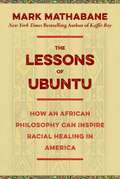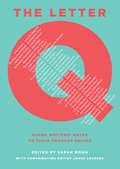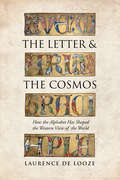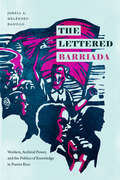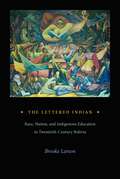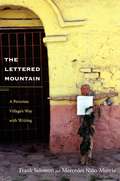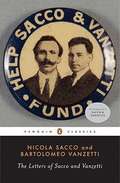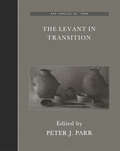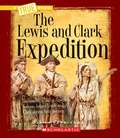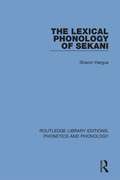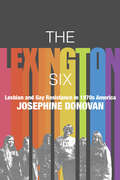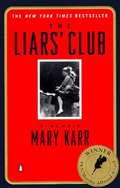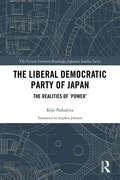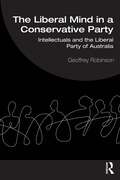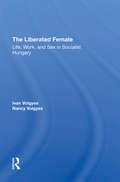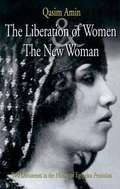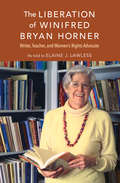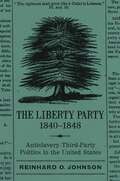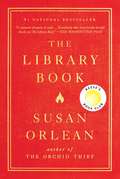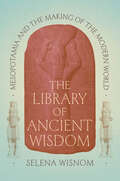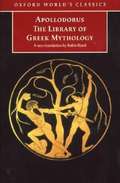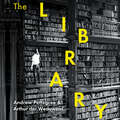- Table View
- List View
The Lessons of Ubuntu: How an African Philosophy Can Inspire Racial Healing in America
by Mark MathabaneA roadmap to healing America’s wounds, bridging the racial divide, and diminishing our anger.Mathabane touched the hearts of millions of people around the world with his powerful memoir, Kaffir Boy, about growing up under apartheid in South Africa and was praised by Oprah Winfrey and Bill Clinton. In his new book, The Lessons of Ubuntu: How an African Philosophy Can Inspire Racial Healing in America, Mathabane draws on his experiences with racism and racial healing in both Africa and America, where he has lived for the past thirty-seven years, to provide a timely and provocative approach to the search for solutions to America’s biggest and most intractable social problem: the divide between the races.In his new book, Mathabane tells what each of us can do to become agents for racial healing and justice by learning how to practice the ten principles of Ubuntu, an African philosophy based on the concept of our shared humanity. The book’s chapters on obstacles correlate to chapters on Ubuntu principles: The Teaching of Hatred vs. Empathy Racial Classification vs. Compromise Profiling vs. Learning Mutual Distrust vs. Nonviolence Black Bigotry vs. Change Dehumanization vs. Fogiveness The Church and White Supremacy vs. Restorative Justice Lack of Empathy vs. Love The Myth That Blacks and Whites Are Monolithic vs. Spirituality Self-Segregation: American Apartheid vs. HopeBy practicing Ubuntu in our daily lives, we can learn that hatred is not innate, that even racists can change, and that diversity is America’s greatest strength and the key to ensuring our future.Concerned by the violent protests on university campuses and city streets, and the killing of black men by the police, Mathabane challenges both blacks and whites to use the lessons of Ubuntu to overcome the stereotypes and mistaken beliefs that we have about each other so that we can connect as allies in the quest for racial justice.
The Letter Q: Queer Writers' Notes to Their Younger Selves
by James Lecesne Sarah MoonLife-saving letters from a glittering wishlist of top authors.If you received a letter from your older self, what do you think it would say? What do you wish it would say?That the boy you were crushing on in History turns out to be gay too, and that you become boyfriends in college? That the bully who is making your life miserable will one day become so insignificant that you won't remember his name until he shows up at your book signing?In this anthology, sixty-three award-winning authors such as Michael Cunningham, Amy Bloom, Jacqueline Woodson, Gregory Maguire, David Levithan, and Armistead Maupin make imaginative journeys into their pasts, telling their younger selves what they would have liked to know then about their lives as Lesbian, Gay, Bisexual, or Transgendered people. Through stories, in pictures, with bracing honesty, these are words of love and understanding, reasons to hold on for the better future ahead. They will tell you things about your favorite authors that you never knew before. And they will tell you about yourself.
The Letter and the Cosmos: How the Alphabet Has Shaped the Western View of the World
by Laurence N de LoozeFrom our first ABCs to the Book of Revelation's statement that Jesus is "the Alpha and Omega," we see the world through our letters. More than just a way of writing, the alphabet is a powerful concept that has shaped Western civilization and our daily lives. In The Letter and the Cosmos, Laurence de Looze probes that influence, showing how the alphabet has served as a lens through which we conceptualize the world and how the world, and sometimes the whole cosmos, has been perceived as a kind of alphabet itself. Beginning with the ancient Greeks, he traces the use of alphabetic letters and their significance from Plato to postmodernism, offering a fascinating tour through Western history.A sharp and entertaining examination of how languages, letterforms, orthography, and writing tools have reflected our hidden obsession with the alphabet, The Letter and the Cosmos is illustrated with copious examples of the visual and linguistic phenomena which de Looze describes. Read it, and you'll never look at the alphabet the same way again.
The Lettered Barriada: Workers, Archival Power, and the Politics of Knowledge in Puerto Rico
by Jorell A. Meléndez-BadilloIn The Lettered Barriada, Jorell A. Meléndez-Badillo tells the story of how a cluster of self-educated workers burst into Puerto Rico's world of letters and navigated the colonial polity that emerged out of the 1898 US occupation. They did so by asserting themselves as citizens, producers of their own historical narratives, and learned minds. Disregarded by most of Puerto Rico's intellectual elite, these workers engaged in dialogue with international peers and imagined themselves as part of a global community. They also entered the world of politics through the creation of the Socialist Party, which became an electoral force in the first half of the twentieth century. Meléndez-Badillo shows how these workers produced, negotiated, and deployed powerful discourses that eventually shaped Puerto Rico's national mythology. By following these ragtag intellectuals as they became politicians and statesmen, Meléndez-Badillo also demonstrates how they engaged in racial and gender silencing, epistemic violence, and historical erasures in the fringes of society. Ultimately, The Lettered Barriada is about the politics of knowledge production and the tensions between working-class intellectuals and the state.Duke University Press Scholars of Color First Book Award recipient
The Lettered Indian: Race, Nation, and Indigenous Education in Twentieth-Century Bolivia
by Brooke LarsonBringing into dialogue the fields of social history, Andean ethnography, and postcolonial theory, The Lettered Indian maps the moral dilemmas and political stakes involved in the protracted struggle over Indian literacy and schooling in the Bolivian Andes. Brooke Larson traces Bolivia’s major state efforts to educate its unruly Indigenous masses at key junctures in the twentieth century. While much scholarship has focused on “the Indian boarding school” and other Western schemes of racial assimilation, Larson interweaves state-centered and imperial episodes of Indigenous education reform with vivid ethnographies of Aymara peasant protagonists and their extraordinary pro-school initiatives. Exploring the field of vernacular literacy practices and peasant political activism, she examines the transformation of the rural “alphabet school” from an instrument of the civilizing state into a tool of Aymara cultural power, collective representation, and rebel activism. From the metaphorical threshold of the rural school, Larson rethinks the politics of race and indigeneity, nation and empire, in postcolonial Bolivia and beyond.
The Lettered Mountain: A Peruvian Village’s Way with Writing
by Mercedes Niño-Murcia Frank L. SalomonAndean peoples joined the world of alphabetic literacy nearly 500 years ago, yet the history of their literacy has remained hidden until now. In The Lettered Mountain, Frank Salomon and Mercedes Niño-Murcia expand notions of literacy and challenge stereotypes of Andean "orality" by analyzing the writings of mountain villagers from Inka times to the Internet era. Their historical ethnography is based on extensive research in the village of Tupicocha, in the central Peruvian province of Huarochirí. The region has a special place in the history of Latin American letters as the home of the unique early-seventeenth-century Quechua-language book explaining Peru's ancient gods and priesthoods. Granted access to Tupicocha's surprisingly rich internal archives, Salomon and Niño-Murcia found that legacy reflected in a distinctive version of lettered life developed prior to the arrival of state schools. In their detailed ethnography, writing emerges as a vital practice underlying specifically Andean sacred culture and self-governance. At the same time, the authors find that Andean relations with the nation-state have been disadvantaged by state writing standards developed in dialogue with European academies but not with the rural literate tradition.
The Letters of Sacco and Vanzetti
by Nicola Sacco Bartolomeo VanzettiCommemorating the eightieth anniversary of Sacco and Vanzetti's execution- with a new cover and new foreword Electrocuted in 1927 for the murder of two guards in Massachusetts, the Italian- American anarchists Nicola Sacco and Bartolomeo Vanzetti defied the verdict against them, maintaining their innocence to the end. Whether they were guilty continues to be the subject of debate today. First published in 1928, Sacco and Vanzetti's letters represent one of the great personal documents of the twentieth century: a volume of primary source material as famous for the splendor of its impassioned prose as for the brilliant light it sheds on the characters of the two dedicated anarchists who became the focus of worldwide attention. .
The Levant in Transition: No. 4 (The Palestine Exploration Fund Annual)
by P.J. ParrThe latter part of the 3rd millennium BC witnessed severe dislocations in the social, economic and political structures of the lands at the eastern end of the Mediterranean Sea - the Levant. In the south, in what is now Israel, the Palestinian Territories and Jordan, hitherto thriving urban centres disappeared, to be replaced for several centuries
The Lewis And Clark Expedition (True Books: Westward Expansion)
by John PerritanoComprehensive text about the Lewis and Clark expedition in the Louisiana territory in preparation for the Louisiana Purchase.
The Lexical Phonology of Sekani (Routledge Library Editions: Phonetics and Phonology #6)
by Sharon HargusFirst published in 1988. This title explores the phonology of Sekani, a northern Athabaskan language, within the framework of Lexical Phonology. After providing an overview of the language of Sekani and the theory of Lexical Phonology, the author goes on to explore various issues in the application of this theory. This title will be of interest to students of language and linguistics.
The Lexington Six: Lesbian and Gay Resistance in 1970s America
by Josephine DonovanOn September 23, 1970, a group of antiwar activists staged a robbery at a bank in Massachusetts, during which a police officer was killed. While the three men who participated in the robbery were soon apprehended, two women escaped and became fugitives on the FBI's Ten Most Wanted list, eventually landing in a lesbian collective in Lexington, Kentucky, during the summer of 1974. In pursuit, the FBI launched a massive dragnet. Five lesbian women and one gay man ended up in jail for refusing to cooperate with federal officials, whom they saw as invading their lives and community. Dubbed the Lexington Six, the group's resistance attracted national attention, inspiring a nationwide movement in other minority communities. Like the iconic Stonewall demonstrations, this gripping story of spirited defiance has special resonance in today's America. Drawing on transcripts of the judicial hearings, contemporaneous newspaper accounts, hundreds of pages of FBI files released to the author under the Freedom of Information Act, and interviews with many of the participants, Josephine Donovan reconstructs this fascinating, untold story. The Lexington Six is a vital addition to LGBTQ, feminist, and radical American history.
The Liars' Club: A Memoir
by Mary Karr"Astonishing. . . one of the most dazzling and moving memoirs to come along in years. " -Michiko Kakutani, The New York Times. "Mary Karr's God-awful childhood has a calamitous appeal. . . the choice in the book is between howling misery and howling laughter, and the reader veers toward laughter. Karr has survived to write a drop-dead reply to the question, 'Ma, what was it like when you were a little girl?'" -Time. "This book is so good I thought about sending it out for a back-up opinion. . . it's like finding Beethoven in Hoboken. To have a poet's precision of language and a poet's instinct into people applied to one of the roughest, ugliest places in America is an astonishing event. " -Molly Ivins, The Nation. "Elegiac and searching. . . her toughness of spirit, her poetry, her language, her very voice are the agents of rebirth on this difficult, hard-earned journey. " -New York Times Book Review. "Bold, blunt, and cinematic. . . nothing short of superb. " -Entertainment Weekly. "Overflows with sparkling wit and humor. . . Truth beats powerfully at the heart of this dazzling memoir. " -San Francisco Chronicle. "Karr lovingly retells her parents' best lies and drunken extravagances with an ear for bar-stool phraseology and a winking eye for image. The revelations continue to the final page, with a misleading carelessness as seductive as any world-class liar's. " -The New Yorker.
The Liberal Democratic Party of Japan: The Realities of ‘Power’ (Nissan Institute/Routledge Japanese Studies)
by Kōji NakakitaThis book provides a thorough analysis of the Liberal Democratic Party of Japan (LDP), from a variety of perspectives including its factions, party presidential elections, the distribution of posts, national elections, local organisations, the policy making process and partner organisations. Drawing on comprehensive and up-to-date data, as well as a large number of interviews, internal party documents and quantitative data, The Liberal Democratic Party of Japan explains the machinery of the Japanese government and ruling party, exploring how policies are made. In so doing, the chapters also analyse the strengths and weaknesses of today’s LDP through a comparison of Koizumi Juni’ichirō and Abe Shinzō, both having established long-lasting administrations through their strong leadership. Demonstrating how the LDP has changed significantly over recent years, particularly since the political reforms of 1994, this book will be extremely useful to students and scholars of Japanese and Asian politics.
The Liberal Mind in a Conservative Party: Intellectuals and the Liberal Party of Australia
by Geoffrey RobinsonRobinson analyses the peculiarly Australian intellectual tradition of liberal conservatism within the mainstream centre-right Liberal Party of Australia. Conservative intellectuals in Australia have forged a pragmatic, sceptical and utilitarian liberal conservatism focused on the tasks of government. It remains distant both from the romantic and organicist ideas of the populist right and the simplicities of libertarianism.Focusing on key figures within this tradition, Robinson tracks the progress of Australian liberal conservatism over the years through its origins in the work of David Hume to the thoughts of Peter Coleman, David Kemp and Andrew Norton before moving forward to George Brandis and Gregory Melleuish. The Liberal Party of Australia has appealed successfully to the conservative sentiments of voters in a liberal society. The Liberal Mind in a Conservative Party tells the story of seven intellectuals who helped make this possible. Peter Coleman drew on John Anderson, Georges Sorel and Michael Oakeshott to champion neoconservatism. He argues that this potent political ideology has shaped a distinct political identity, which rejects conservative traditionalism, and libertarian economics, while defending a pragmatic approach to capitalism.A fascinating read for students and scholars of Australian politics, this book will also be of great value to readers with an interest in international centre-right politics.
The Liberated Female
by Ivan VolgyesThis book examines the Hungarian experiment to liberate women from servitude. It provides details on the problems of Hungarian women in employment, in the household, and in the sexual relations and outlines the social policies of the government and the patriarchal culture values in society.
The Liberation Of Women And The New Woman: Two Documents In The History Of Egyptian Feminism
by Qasim AminQasim Amin (1863-1908), an Egyptian lawyer, is best known for his advocacy of women's emancipation in Egypt, through a number of works including The Liberation of Women and The New Woman. In the first of these important books in 1899, he started from the premise that the liberation of womenwas an essential prerequisite for the liberation of Egyptian society from foreign domination, and used arguments based on Islam to call for an improvement in the status of women. In doing so, he promoted the debate on women in Egypt from a side issue to a major national concern, but he alsosubjected himself to severe criticism from the khedival palace, as well as from religious leaders, journalists, and writers. In response he wrote The New Woman, published in 1900, in which he defended his position and took some of his ideas further. In The New Woman, Amin relies less on arguments based on the Quran and Sayings of the Prophet, and more openly espouses a Western model of development. Although published acentury ago, these two books continue to be a source of controversy and debate in the Arab world and remain key works for understanding the Arab feminist movement. The Liberation of Women and The New Woman appear here in English translation for the first time in one volume.
The Liberation of Winifred Bryan Horner: Writer, Teacher, and Women's Rights Advocate
by Elaine J. LawlessThis inspiring tale of grit and determination sprinkled with humor, wit, and a taste of irony is the story of Winifred Bryan Horner’s journey from a life of domesticity on the family farm after World War II to becoming an Endowed Professor. Her compelling story is one of a woman’s fight for equal rights and her ultimate success at a time when women were openly deemed "less than" men in the professional world. Winifred, a professional writer and consummate storyteller known to friends and family as Win, always assumed she would write her own memoir. But after retiring from teaching, she found that she could never find the time or inspiration to sit down and record the pivotal stories of her remarkable 92 years of life. Colleague and mentee Elaine J. Lawless devised a plan to interview Win about her life and allow her to tell stories with the intention that Win would edit the transcriptions into her memoir. Over four months, Elaine visited Win on Wednesdays to interview her about her life. Sadly, just one week after the conclusion of the final interview, Win unexpectedly passed away, before Elaine could give her the final transcripts. With the support of Win’s family, Elaine set out to finish this book on Win’s behalf.Win’s story is one that will inspire and resonate with women as they continue to work toward equality in the world.
The Libertarian Illusion: Ideology, Public Policy, and the Assault on the Common Good
by William E. HudsonThe Libertarian Illusion offers a well researched, balanced, and systematic critique of libertarian policy proposals on both the conservative (taxation and fiscal policy, health care, social security, and business regulation) and liberal (abortion, stem cell research, and euthanasia) sides of the traditional political spectrum.
The Liberty Party, 1840-1848: Antislavery Third-Party Politics in the United States (Antislavery, Abolition, and the Atlantic World)
by Reinhard O. JohnsonIn early 1840, abolitionists founded the Liberty Party as a political outlet for their antislavery beliefs. A mere eight years later, bolstered by the increasing slavery debate and growing sectional conflict, the party had grown to challenge the two mainstream political factions in many areas. In The Liberty Party, 1840--1848, Reinhard O. Johnson provides the first comprehensive history of this short-lived but important third party, detailing how it helped to bring the antislavery movement to the forefront of American politics and became the central institutional vehicle in the fight against the "peculiar institution." As the major instrument of antislavery sentiment, the Liberty organization was more than a political party and included not only eligible voters but also disfranchised African Americans and women. Most party members held evangelical beliefs, and as Johnson relates, an intense religiosity permeated most of the group's activities. At least eight U.S. senators, eighteen members of the House of Representatives, five state governors, and two justices of the Supreme Court were among the many Liberty Party members with distinguished careers in the public and private sectors. Though most early Liberty supporters came from the Whig Party, an increasing number of former Democrats joined the party as it matured. Johnson discusses the Liberty Party's founding and its national growth through the presidential election of 1844; its struggles to define itself amid serious internal disagreements over philosophy, strategy, and tactics in the ensuing years; and the reasons behind its decline and merger into the Free Soil coalition in 1848. Since most Liberty Party activities occurred at the state level, Johnson treats the history of each state party in considerable detail, demonstrating how the party developed differently state by state and illustrating how these differences blended with the national view of the party.Informative appendices include statewide results for all presidential and gubernatorial elections between 1840 and 1848, the Liberty Party's 1844 platform, and short biographies of every Liberty member mentioned in the main text of the book. Epic in scope and encyclopedic in detail, The Liberty Party, 1840--1848 will serve as an invaluable reference for anyone interested in nineteenth-century American politics.
The Library Book
by Susan OrleanA REESE WITHERSPOON x HELLO SUNSHINE BOOK CLUB PICK A WASHINGTON POST TOP 10 BOOK OF THE YEAR * A NEW YORK TIMES BESTSELLER and NEW YORK TIMES NOTABLE BOOK OF 2018 &“A constant pleasure to read…Everybody who loves books should check out The Library Book.&” —The Washington Post &“CAPTIVATING…DELIGHTFUL.&” —Christian Science Monitor * &“EXQUISITELY WRITTEN, CONSISTENTLY ENTERTAINING.&” —The New York Times * &“MESMERIZING…RIVETING.&” —Booklist (starred review) A dazzling love letter to a beloved institution—and an investigation into one of its greatest mysteries—from the bestselling author hailed as a &“national treasure&” by The Washington Post.On the morning of April 29, 1986, a fire alarm sounded in the Los Angeles Public Library. As the moments passed, the patrons and staff who had been cleared out of the building realized this was not the usual fire alarm. As one fireman recounted, &“Once that first stack got going, it was &‘Goodbye, Charlie.&’&” The fire was disastrous: it reached 2000 degrees and burned for more than seven hours. By the time it was extinguished, it had consumed four hundred thousand books and damaged seven hundred thousand more. Investigators descended on the scene, but more than thirty years later, the mystery remains: Did someone purposefully set fire to the library—and if so, who? Weaving her lifelong love of books and reading into an investigation of the fire, award-winning New Yorker reporter and New York Times bestselling author Susan Orlean delivers a mesmerizing and uniquely compelling book that manages to tell the broader story of libraries and librarians in a way that has never been done before. In The Library Book, Orlean chronicles the LAPL fire and its aftermath to showcase the larger, crucial role that libraries play in our lives; delves into the evolution of libraries across the country and around the world, from their humble beginnings as a metropolitan charitable initiative to their current status as a cornerstone of national identity; brings each department of the library to vivid life through on-the-ground reporting; studies arson and attempts to burn a copy of a book herself; reflects on her own experiences in libraries; and reexamines the case of Harry Peak, the blond-haired actor long suspected of setting fire to the LAPL more than thirty years ago. Along the way, Orlean introduces us to an unforgettable cast of characters from libraries past and present—from Mary Foy, who in 1880 at eighteen years old was named the head of the Los Angeles Public Library at a time when men still dominated the role, to Dr. C.J.K. Jones, a pastor, citrus farmer, and polymath known as &“The Human Encyclopedia&” who roamed the library dispensing information; from Charles Lummis, a wildly eccentric journalist and adventurer who was determined to make the L.A. library one of the best in the world, to the current staff, who do heroic work every day to ensure that their institution remains a vital part of the city it serves. Brimming with her signature wit, insight, compassion, and talent for deep research, The Library Book is Susan Orlean&’s thrilling journey through the stacks that reveals how these beloved institutions provide much more than just books—and why they remain an essential part of the heart, mind, and soul of our country. It is also a master journalist&’s reminder that, perhaps especially in the digital era, they are more necessary than ever.
The Library at Night
by Alberto Manguel"The starting point is a question," Alberto Manguel writes in the introduction toThe Library at Night: since few can doubt that the universe is ultimately meaningless and purposeless, why do we try to give it order? After all, our efforts are surely doomed to failure. It’s hard to think of a more profound or serious subject to start with – butThe Library at Night,Alberto Manguel says, is by no means a systematic answer. Rather, it is the story of the search for one. In the tradition ofA History of Reading, this book is an account of Manguel’s astonishment at the variety, beauty and persistence of our efforts to shape the world and our lives, most notably through something almost as old as reading itself: libraries. The result is both intimately personal and incredibly wide-ranging: it is a fascinating study of the mysteries of libraries, a thorough analysis of their history throughout the world and an esoteric, enchanting celebration of reading. It is, perhaps most of all, a book that only Alberto Manguel could have written. The Library at Nightbegins with the design and construction of Alberto Manguel’s own library at his house in western France – a process that raises puzzling questions about his past and his reading habits, as well as broader ones about the nature of categories, catalogues, architecture and identity. Exploring these themes with a deliberately unsystematic brilliance, Manguel takes us to the great Library at Alexandria, and Michelangelo’s Laurentian Library in Florence; we sit with Jorge Luis Borges in his office at the National Library in Argentina, travel with donkeys carrying books into the Colombian hinterland, and discover theFihrist, a chaotic and delightful bibliographic record of medieval Arab knowledge. There seem to be no limits to Manguel’s learning, or his ability to illuminate his investigations with magical, telling details from the past. Thematically organized and beautifully illustrated, this book considers libraries as treasure troves and architectural spaces; it looks on them as autobiographies of their owners and as statements of national identity. It examines small personal libraries and libraries that started as philanthropic ventures, and analyzes the unending promise – and defects – of virtual ones. It compares different methods of categorization (and what they imply) and libraries that have built up by chance as opposed to by conscious direction. Although it is encyclopedic (and discusses encyclopedias assembled by Diderot and fifteenth-century Chinese scholars alike) and full of concrete historical analysis (including a brief investigation of the prejudices underlying the Dewey Decimal System) this book is animated throughout by a gentle, even playful sensibility: it is governed by the browser’s logic of association and pleasure, rather than the rigid lines of scholarly theory. After all, everything in a library is connected: "As the librarians of Alexandria perhaps discovered, any single literary moment necessarily implies all others. " In part this is because this is about the libraryat night, not during the day: this book takes in what happens after the lights go out, when the world is sleeping, when books become the rightful owners of the library and the reader is the interloper. Then all daytime order is upended: one book calls to another across the shelves, and new alliances are created across time and space. And so, as well as the best design for a reading room and the makeup of Robinson Crusoe’s library, this book dwells on more "nocturnal" subjects: fictional libraries like those carried by Count Dracula and Frankenstein’s monster; shadow libraries of lost and censored books; imaginary libraries of books not yet written.
The Library of Ancient Wisdom: Mesopotamia and the Making of the Modern World
by Selena WisnomA tour of an ancient library transports us to Mesopotamia, introducing us to its people, their ideas, and their humanity. The library of Ashurbanipal, Assyria’s last great king, held an astonishing collection at the forefront of knowledge in its day, from ancient traditions in religion and literature to the latest developments in magic and medicine. When the Assyrian empire fell, the library burned to the ground, and its contents, clay tablets inscribed with cuneiform writing, lay buried for thousands of years until a team of Victorian archaeologists discovered the remnants in modern-day Iraq. The clay had baked and hardened; the very fire that consumed the library had helped its texts to survive for millennia. In The Library of Ancient Wisdom, scholar Selena Wisnom, one of only a few hundred experts able to read cuneiform script today, guides us inside this important collection and, through its contents, brings ancient Mesopotamia and its people to life. Introducing us to Ashurbanipal and his family, scribes, astrologers, physicians, and more, Wisnom explores the library’s tablets and the details they divulge about how these ancient people thought about the world. Like us, they had concerns about job security, jealous rivalries, and profound friendships, and questions about the meaning of life. Wisnom ushers us into a world where magic was commonplace, where the gods spoke to you in dreams, and where the secrets of the universe were revealed through puns—taking us to the heart of what it means to be human. Offering a close look at a major historical landmark as well as a readable account of the world’s earliest civilizations, The Library of Ancient Wisdom lays bare the ideas, hopes, fears, and desires that survive on humble clay.
The Library of Greek Mythology
by Apollodorus Robin HardThe Library of Greek Mythology is a complete summary of early Greek myth, telling the story of each of the great families of heroic mythology, and the various adventures associated with the main heroes and heroines, from Jason and Perseus to Heracles and Helen of Troy. Using the ancient system of detailed histories of the great families, it contains invaluable genealogical diagrams for maximum clarity.
The Library: A Catalogue of Wonders
by Stuart Kells""Excellent . . . Tracks the history of that greatest of all cultural institutions." —The Washington PostLibraries are much more than mere collections of volumes. The best are magical, fabled places whose fame has become part of the cultural wealth they are designed to preserve. Some still exist today; some are lost, like those of Herculaneum and Alexandria; some have been sold or dispersed; and some never existed, such as those libraries imagined by J.R.R. Tolkien, Umberto Eco, and Jorge Luis Borges, among others.Ancient libraries, grand baroque libraries, scientific libraries, memorial libraries, personal libraries, clandestine libraries: Stuart Kells tells the stories of their creators, their prizes, their secrets, and their fate. To research this book, Kells traveled around the world with his young family like modern–day “Library Tourists.” Kells discovered that all the world’s libraries are connected in beautiful and complex ways, that in the history of libraries, fascinating patterns are created and repeated over centuries. More important, he learned that stories about libraries are stories about people, containing every possible human drama.The Library is a fascinating and engaging exploration of libraries as places of beauty and wonder. It’s a celebration of books as objects, a celebration of the anthropology and physicality of books and bookish space, and an account of the human side of these hallowed spaces by a leading and passionate bibliophile.
The Library: A Fragile History
by Andrew PettegreeFamed across the known world, jealously guarded by private collectors, built up over centuries, destroyed in a single day, ornamented with gold leaf and frescoes or filled with bean bags and children's drawings - the history of the library is rich, varied and stuffed full of incident.In this, the first major history of its kind, Andrew Pettegree and Arthur der Weduwen explore the contested and dramatic history of the library, from the famous collections of the ancient world to the embattled public resources we cherish today. Along the way, they introduce us to the antiquarians and philanthropists who shaped the world's great collections, trace the rise and fall of fashions and tastes, and reveal the high crimes and misdemeanours committed in pursuit of rare and valuable manuscripts.
